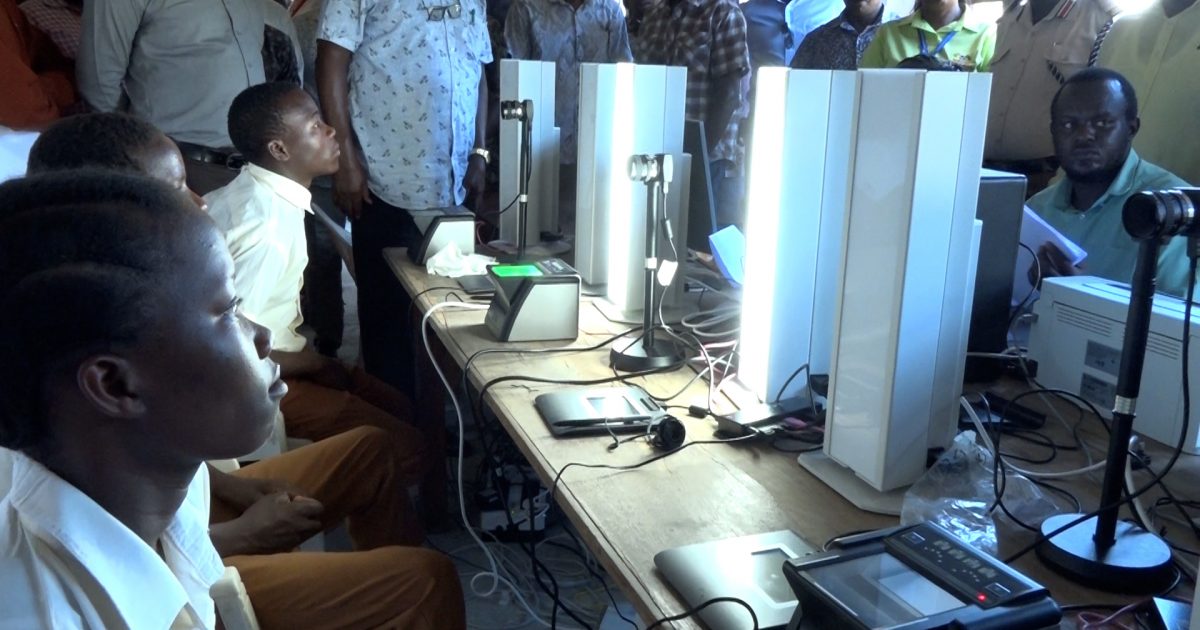The Kenya Government has launched a mass registration exercise for the issuance of the third-generation national identity cards to all secondary school students who have attained the age of 18 years and above.
The exercise kicked off Thursday with the registration of form four candidates currently sitting the Kenya Certificate of Secondary Education (KCSE).
Immigration and Citizen Services Principal Secretary Prof. Julius Bitok, who launched presided over the national launch at Ngomeni Secondary School in Magarini Sub County, Kilifi County, said the government is targeting about 965,000 candidates this year.
Bitok said the exercise, which the state department is carrying out in conjunction with the Ministry of Education, would ease the challenges students face while joining tertiary institutions of learning and while applying for funding from the Education Fund.
“As you are all aware, the president abolished vetting and we did commit ourselves that school registration would be one of our priority areas that we are going to use to identify all eligible Kenyans who are turning 18 to be registered and be given maisha card,” he said.
He encouraged all stakeholders, including all teachers and education officials and county commissioners among others, to cooperate and roll out the programme so that all students are registered while in school.
The PS at the same time launched the virtual capture of applicants’ data through the use of biometrics, which he said would enable applicants to get their cards within ten days, because the system would be able to verify the detail without the hard copies of the application forms being transmitted physically to the National Registration Bureau Headquarters.
“Today, we are also launching the live capture. Students here are not required to apply and their forms taken to Nairobi. When they apply, their data is transmitted electronically to Nairobi automatically, and within seven days, they have their ID cards,” he said.
He said the state department had acquired more live capture machines which were already in use in all Huduma Centres and County Registration Bureaus and that the same would be rolled out in all registration centres across the country.
“Right now, we have live capture in all our Huduma Centres and all our county registration offices and we are planning to roll it out in the whole country,” he said adding, “You will just go to the centres where your fingerprints will be taken and relayed to Nairobi electronically.”
Prof. Bitok said since the government abolished vetting for certain communities during the application for identity card, all assistant chiefs would be held personally liable if any foreigner is registered and issued with the identity document.
“Vetting was abolished by the President on 1st May 2024 and nobody is required to go through vetting. We are holding chiefs and assistant chiefs personally accountable for anybody who is registered in their areas. If a non-Kenyan is registered, then we are going to hold the chiefs and assistant chiefs responsible,” he said.
He urged Kenyans holding the second-generation card to upgrade to the new Maisha Card, which he said had new security features, making it tamper-proof.
The Principal Secretary assured Kenyans that there would be no more delays in the issuance of the card. He however noted that 400,000 were lying uncollected in various registration bureaus country-wide and called upon the applicants to collect them.
Kilifi North Member of Parliament Owen Yaa Baya, who is also the National Assembly Majority Leader, lauded the government for the exercise.
“This is a major milestone for this country. For a long time, Kenyans have been complaining that it takes too long to get an ID card, but for the first time, when students complete their secondary education, the leave school with their ID cards,” he said.
Also present during the function were Kilifi County Commissioner Josphat Biwott and the County Director of Education Veronica Kalungu.
By Emmanuel Masha




